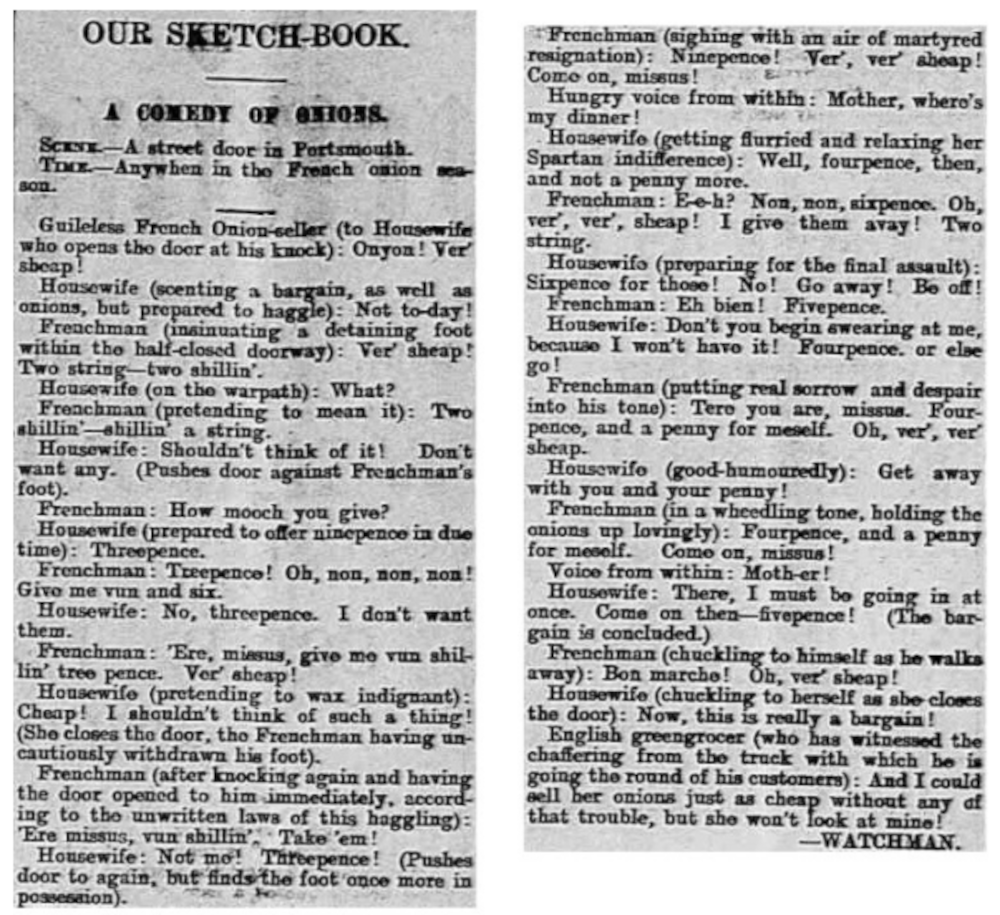The Onion Johnnies’ sales technique had a great effect on the British. Although in the 1870s some press articles focused on their insistence on selling their products and that their intrusion into British households at times when women were often alone was worrying, the hawker-housewife transaction was viewed altogether differently in the 20th century. It represented a simpler time, when trade was on a human scale, founded on interpersonal relationships, in stark contrast to the anonymity of the supermarket. The press were both amused and charmed by their presence. Many articles from the 1930s describe the sales process between onion trader and British housewife, sometimes in the forms of skits, like in The Evening News in 1904. In his book Material Civilisation: Economy and Capitalism, historian Fernand Braudel describes the modern hawker as a "savvy talker, nimble, funny and quick-witted” who knew how to achieve his goal. That’s the image people had of the Johnnies in the 20th century. The press emphasised this image, highlighting their witticisms, their eccentric English and their quaint appearance.
Translation: Tilly O’Neill


